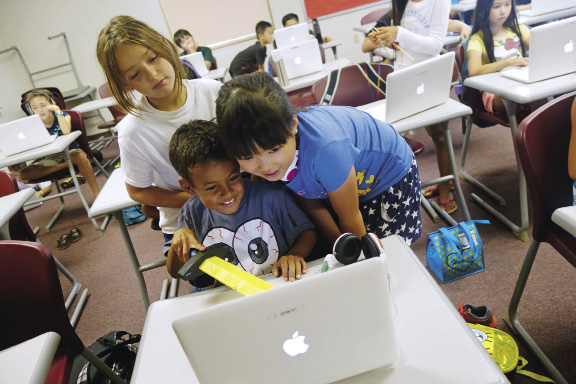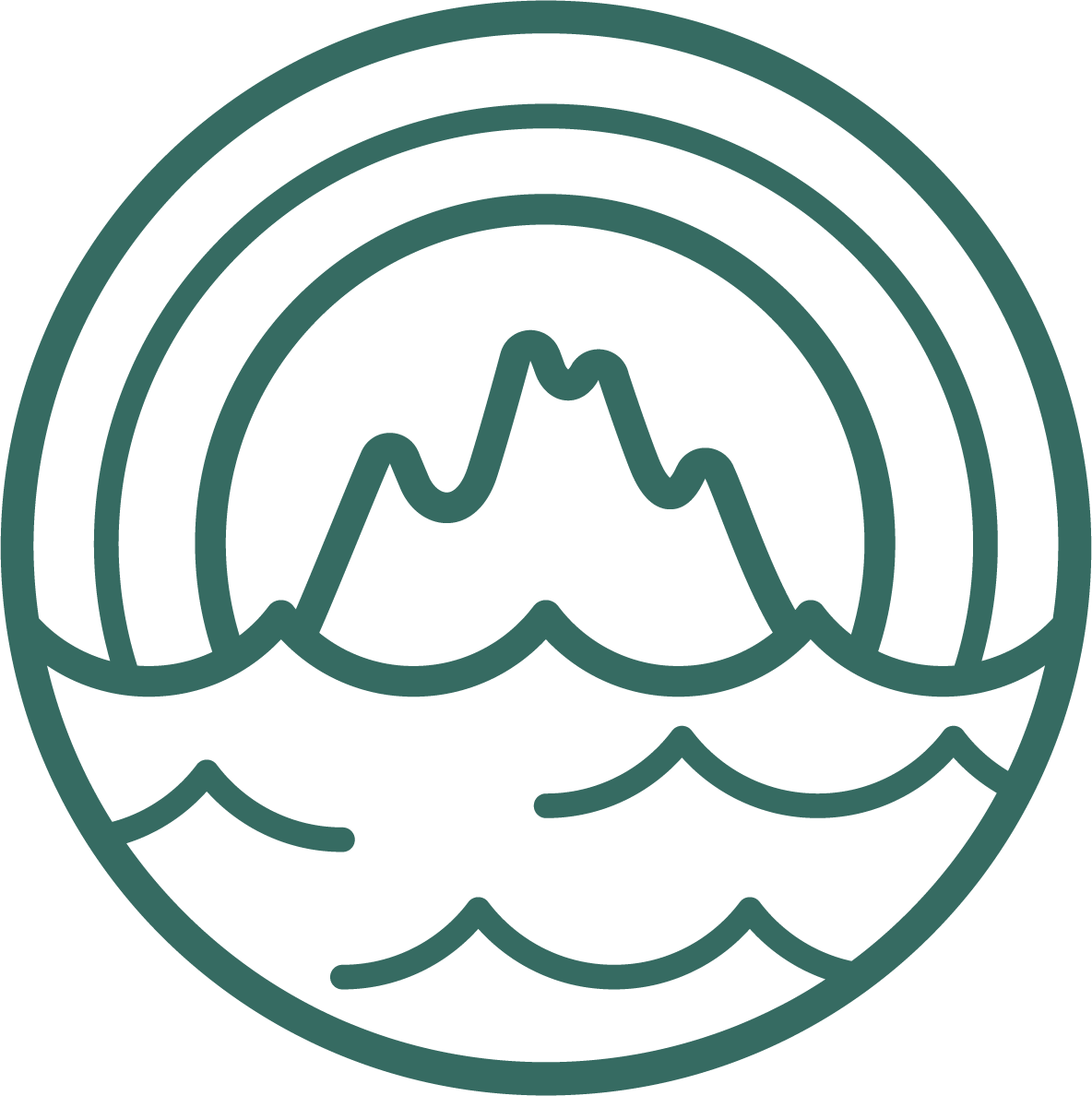
24 Jul ULS Committed to Technological Literacy Throughout the School Environment
The University Laboratory School (ULS), a K–12 public charter school and research partner with CRDG, has taken a leadership role in the education community in its use of technology in the classroom and to support professional development. “ULS is committed to the development of technological literacy in all aspects of the school environment,” said ULS Dean of Curriculum and Instruction Miki Tomita. In partnership with CRDG, ULS is committed to studying ways technology impacts and supports classroom learning and professional development, and to disseminating information about best practices as data become available. This commitment was seen in a number of activities this year, which fall under the umbrella of leveraging technology to create effective, responsible, and ethical citizens in a changing society.
Research and implementation around technology use in the school has followed two primary paths: hardware and software implementation to achieve academic objectives such as collaborative learning environments, and the use of that technologically-rich environment to support students in their explorations and contributions to our local and global societies. Dissemination of best practices that have emerged from the research were a focus in 2013, with faculty and staff from both CRDG and ULS presenting on a host of topics at several technology and education conferences.
CRDG’s information technology team, led by Mark Yap and Robert Nakama, continued efforts to create a data-driven plan for implementation of the school’s one-to-one pilot program, with the goal of sharing findings and best practices with the larger education community. This year’s efforts built upon on research carried out during the first year of the pilot last school year, when each seventh grader was provided with either a MacBook or a Chromebook. The initial study focused on typical issues such as how the technology is used by teachers and students to support student learning, but special focus was also directed to cost, time to deploy, and software options the various devices offer. CRDG and ULS worked together in 2013 to apply these data to the expansion of the one-to-one program to grades 6–8 that uses Chromebooks for all students, as well as to a pilot study of mixed device implementation in the elementary grades to collect data on how different devices support student learning and engagement.
Within this unique charter-laboratory school research environment, teachers and administrators continued to explore ways that technology could enhance learning environments locally and globally. Google Apps for Education (GAFE), a specially designed, free and secure service Google provides for schools, has proven to be a powerful tool for teachers and administrators for both classroom teaching and professional development efforts. ULS faculty’s experience with this platform inspired a series of conference presentations and workshops. ULS Dean of Curriculum and Instruction Tomita presented sessions on how GAFE facilitates administrative functions, while teachers Brendan Brennan, Marybeth Baldwin, Melanie Ishihara, Erin Sakamoto, and Hye Jung Kim focused on ways Google Apps can be used to shape and support effective instructional strategies. Baldwin, Brennan and Ishihara presented sessions at the Schools of the Future conference and the Hawai‘i Google Apps Summit on how Google Apps is proving to be a powerful, appropriate, and cost-effective tool to meet the rigorous demands of the Common Core State Standards. Tomita also presented sessions on how the connectivity of living and teaching in this digital environment is helping the school focus on global citizenship and sustainability through a variety of programs, including Mālama Honua, the Polynesian Voyaging Society’s worldwide voyage of the traditional voyaging canoes Hokule‘a and Hikianalia. Efforts such as these tie strongly to the work of CRDG’s Learning Technology team of Truc Nguyen and Lauren Mark to build curricula that lead to technologically competent, responsible, and ethical global citizens.





